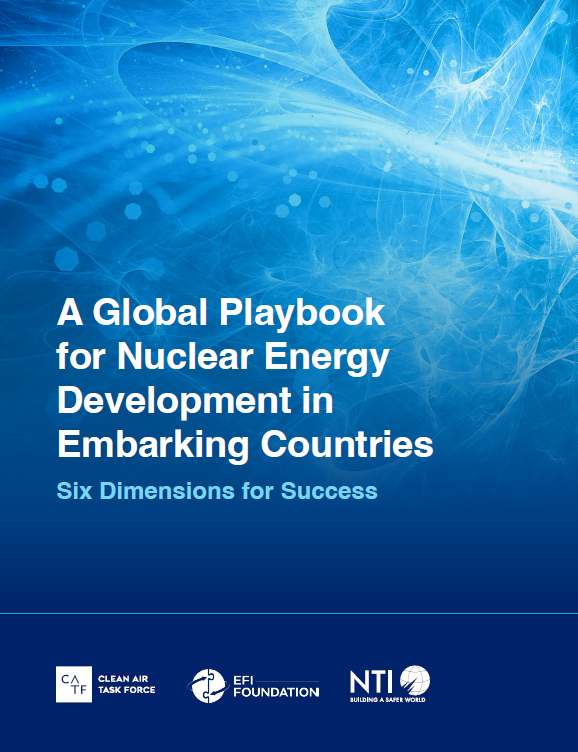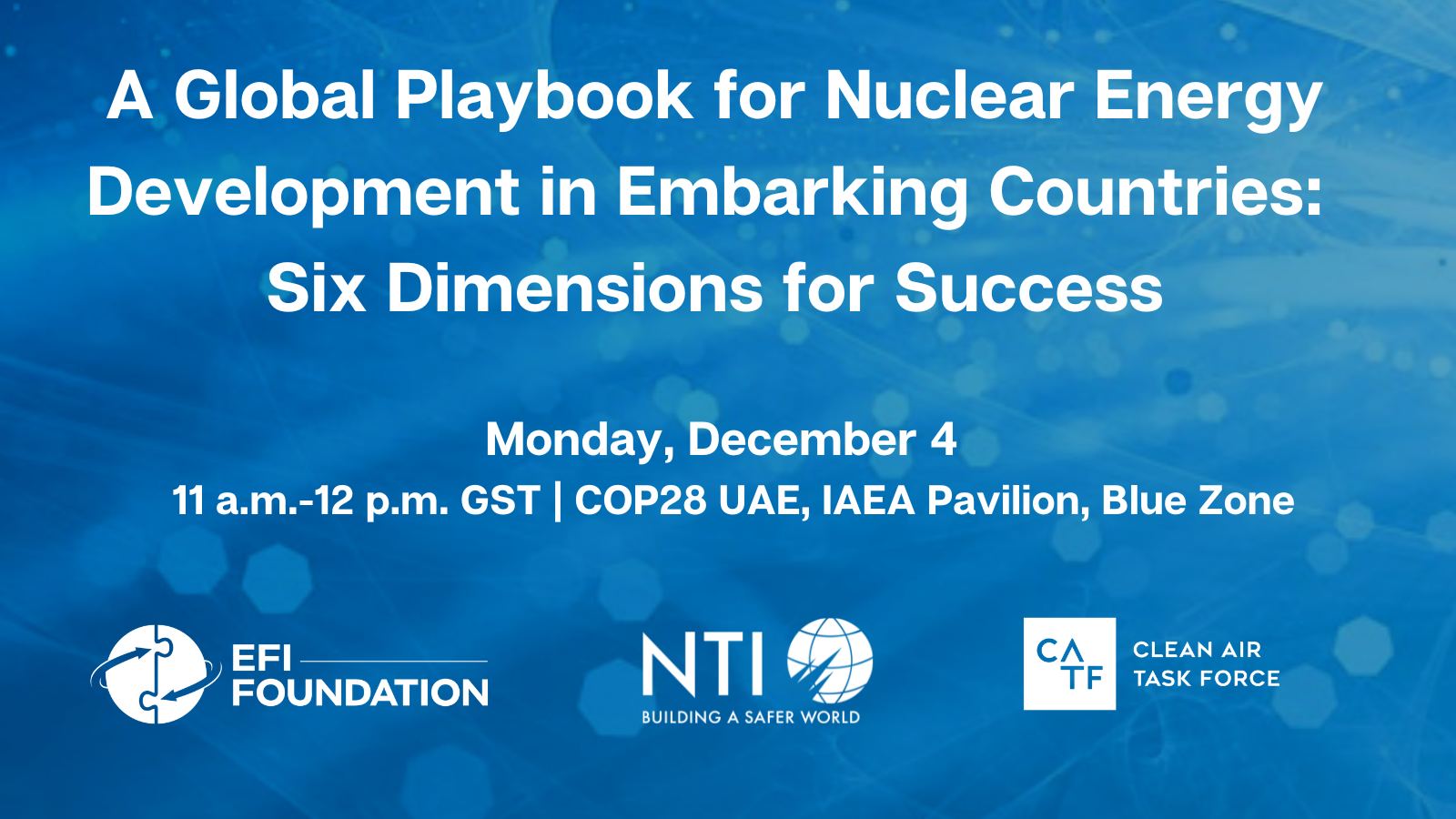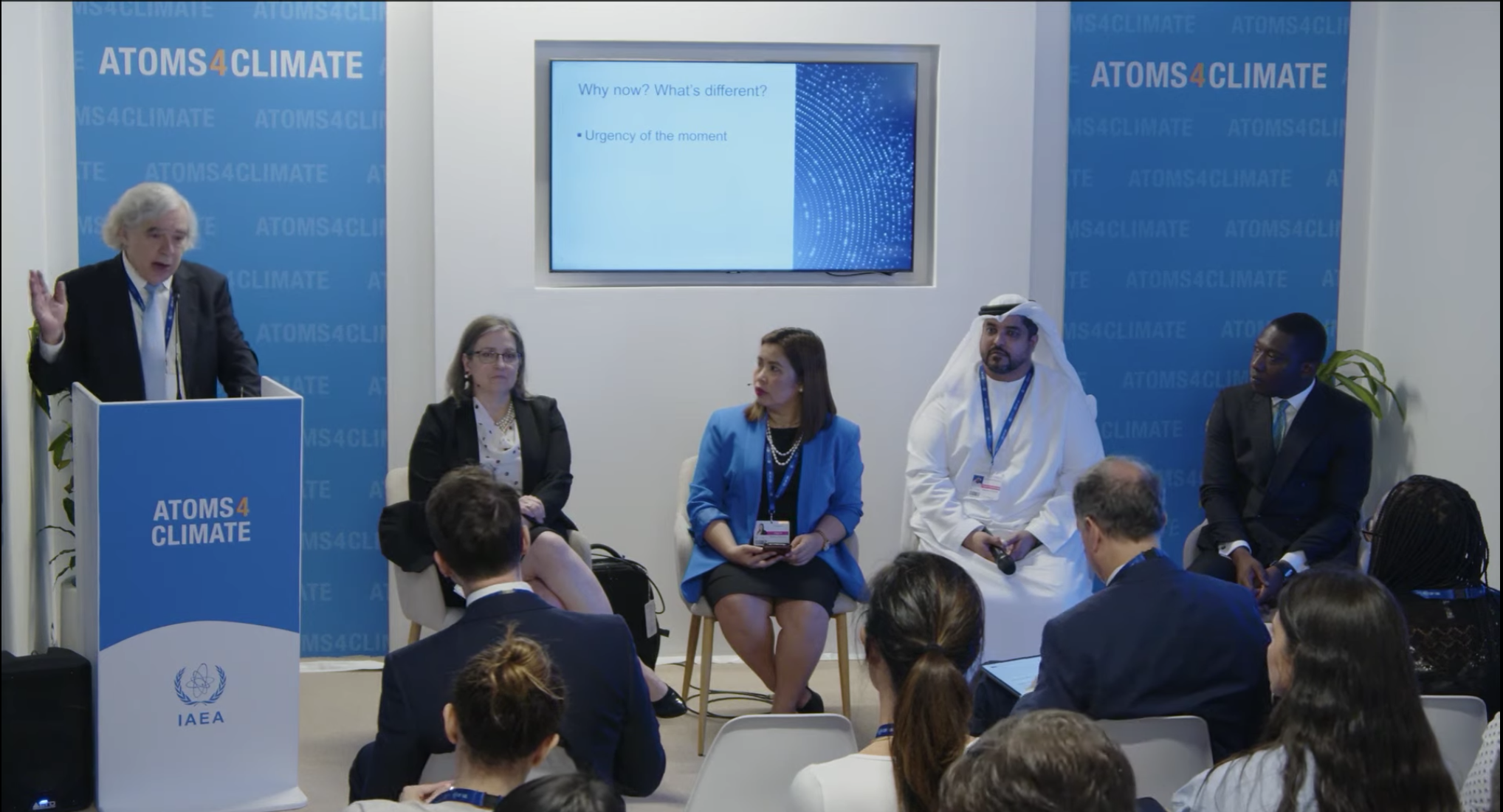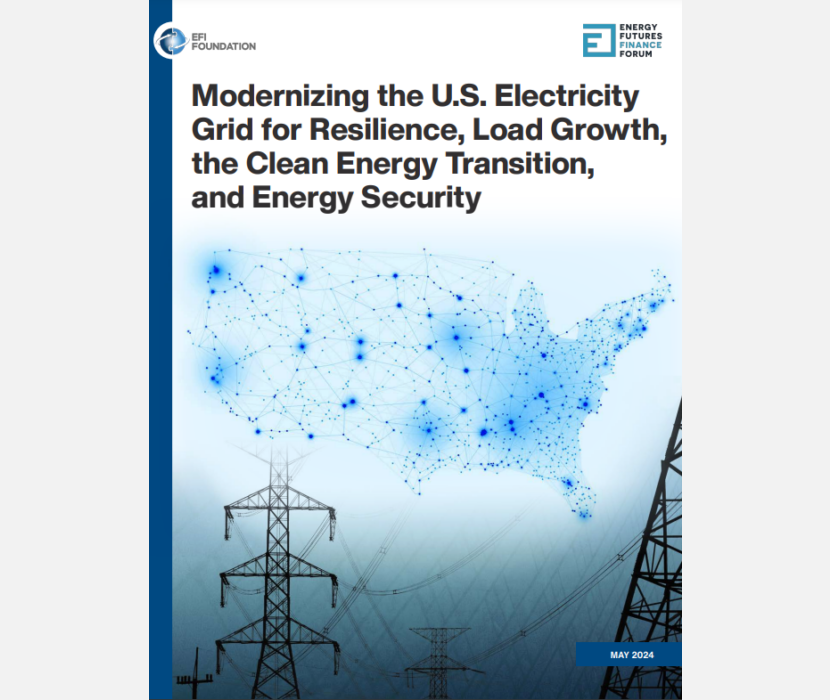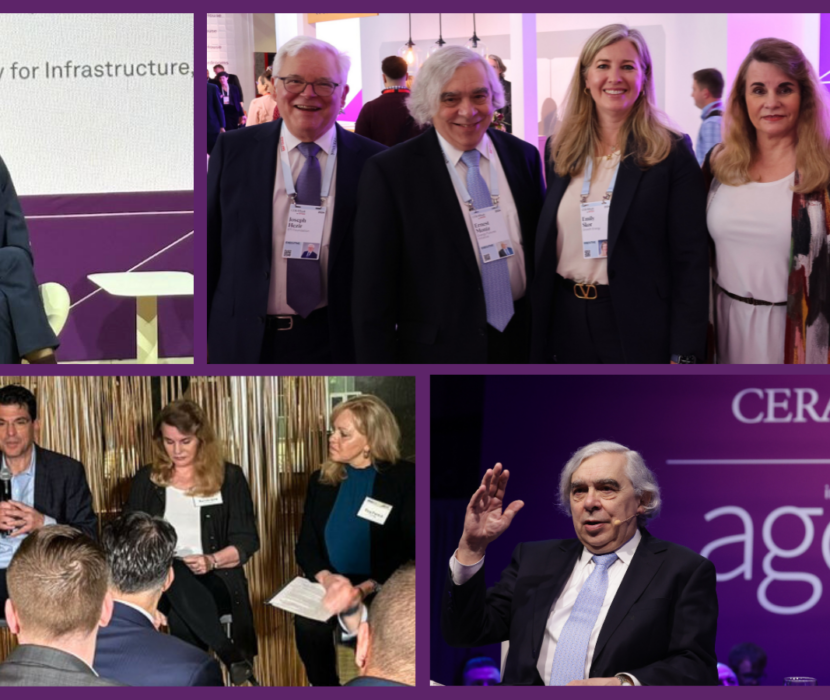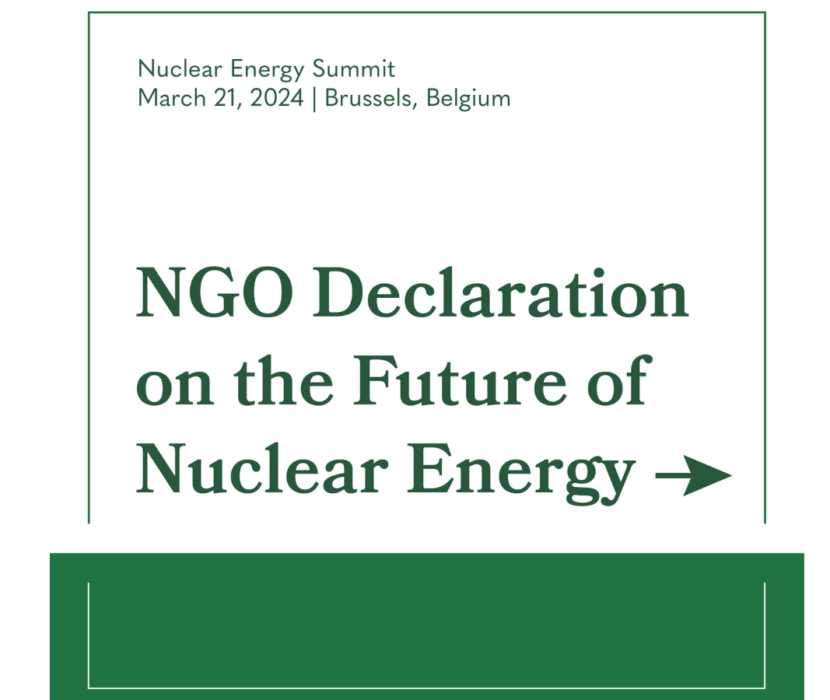
Nuclear energy has a critical role to play as the world looks toward meeting net-zero emissions goals by midcentury to mitigate climate change. At the 28th United Nations climate change conference (COP28), which concluded in December in Dubai, the world saw unprecedented engagement around nuclear. The top-line stories included a pledge from more than 20 countries and 120 companies to triple nuclear power by 2050.
In the midst of the boost for nuclear at COP28, the EFI Foundation, Clean Air Task Force (CATF), and Nuclear Threat Initiative (NTI) held an event on December 4 to unveil a new report that details pathways for how countries can scale up new nuclear energy projects—A Global Playbook for Nuclear Energy Development in Embarking Countries: Six Dimensions for Success.
The event, hosted in the International Atomic Energy Agency’s (IAEA’s) Atoms4Climate pavilion, opened with remarks from Sama Bilbao y León, Director General of the World Nuclear Association (WNA), followed by Sebastian Burduja, the Minister of Energy of Romania. Burduja provided perspectives from his country, which currently generates about 20% of its electricity from nuclear power according to the WNA. Romania is also exploring future deployment of small modular reactors.
“I think we all agree there is no path to net-zero without nuclear,” Burduja said.
Ernest J. Moniz, CEO of the EFI Foundation and Co-Chair and CEO of NTI, and Armond Cohen, Executive Director of CATF, contextualized and introduced the new Playbook, which provides an options-based approach to develop new nuclear energy projects responsibly, effectively, and sustainably. The report spotlights “embarking” countries—a term used by the IAEA to describe nations that do not yet have nuclear in their energy mixes but do have interest in and plans for new projects.
Moniz noted the international pledge to triple nuclear energy by 2050 and emphasized the role for embarking countries.
“Success in tripling [nuclear] will require significant contributions from embarking countries and others,” Moniz said. “The Playbook helps with that success.”
Cohen walked through the Playbook’s six dimensions that embarking countries should consider when exploring nuclear development: project execution and capability building, regulatory system development, project bankability and finance, nonproliferation and nuclear security, spent nuclear fuel management, and workforce development.
“These are very ambitious objectives, but progress can begin today,” Cohen said. He emphasized that although the Playbook focuses on embarking countries, the framework and options can also be applied by countries that have existing nuclear power. “One size doesn’t fit all,” he said. “How it’s implemented is dependent on various countries’ situations.”
The event also featured a panel discussion with Mohamed Al Braiki (Director of Strategy, Emirates Nuclear Energy Corporation), Rowena Tolentino (Head Executive Assistant, Ministry of Energy, Philippines), and Herbert Krapa (Deputy Minister of Energy, Ghana), moderated by Diane Cameron (Head of Division for Nuclear Technology Development and Economics at the Organisation for Economic Co-operation and Development Nuclear Energy Agency).
“COP28 has put nuclear … at center stage,” Cameron said. “The level of ambition that has been set out for us here at COP28 to triple [nuclear] by 2050 means that this is the time for big thinking, and it is the time to raise big, strategic questions. How do we unlock the speed and the scale necessary?”
Al Braiki agreed that the Playbook will be helpful for countries exploring nuclear energy. “[It] shows you, from different segments, how would you start your nuclear journey.”
Perspectives from embarking countries
Cameron and each of the panelists commented on the timeliness of the Playbook. Krapa explained that the launch of the Playbook at COP28 aligns with the current momentum for countries to scale up nuclear to achieve climate goals. Krapa and Tolentino both noted that their countries (Ghana and the Philippines, respectively) are actively taking steps toward nuclear development.
Tolentino said that the Philippines is working to add nuclear energy to provide clean and affordable energy for its people, and that the Playbook will help achieve this. “The issuance of this Playbook is very timely, and it is a strategic resource for embarking countries,” she said. “It will simplify the process [for] deploying nuclear technology in our country.”
Krapa considered the options-based approach as a positive and reassuring distinction of the Playbook. “What has worked in one jurisdiction may not necessarily work directly in another one,” he said. “We are able to modify it … for our own purposes in line with the vision we have for building prosperity for our people in a clean way.”
Workforce development
Several speakers reiterated the fundamental need to address workforce development for new nuclear energy projects. Cohen noted in his overview of the Playbook that the global nuclear workforce has been depleted, following a decades-long nuclear building hiatus. Considering the limited workforce experience currently, the Playbook recommends ways forward to help build up local labor pools.
Speaking to the experience in the United Arab Emirates, Al Braiki remarked that building a workforce early in the process was vital to their success with nuclear development.
“What really helped, strategically speaking, was starting with the workforce development and strategizing and investing in our people early on,” Al Braiki said. “Establishing that investment from the beginning really helped us when we wanted to operate those plants.”
The Playbook does not specifically address public opinion, but many of the speakers highlighted it as a necessary element for successful nuclear deployment.
“We are not going to be able to meet emissions reductions [goals] by half-century without nuclear. … How we rally around to ensure that we carry our people along with the science and the findings, I think, is crucial,” Krapa said.
Cohen mentioned that progress is indeed being made, as public opinion is better now than it was 10 years ago.
Moniz concluded the event by tying in the COP28 theme: “Let’s take [the] charge—‘Unite. Act. Deliver.’—to work together on the delivering part, because we’ve got a ways to go, a terawatt [of nuclear energy] to go in the next quarter century.”
– Callyn Bloch, Communications Fellow; and Adrienne Young, Senior Communications Lead
Supplemental Material
(Share this post with others.)


